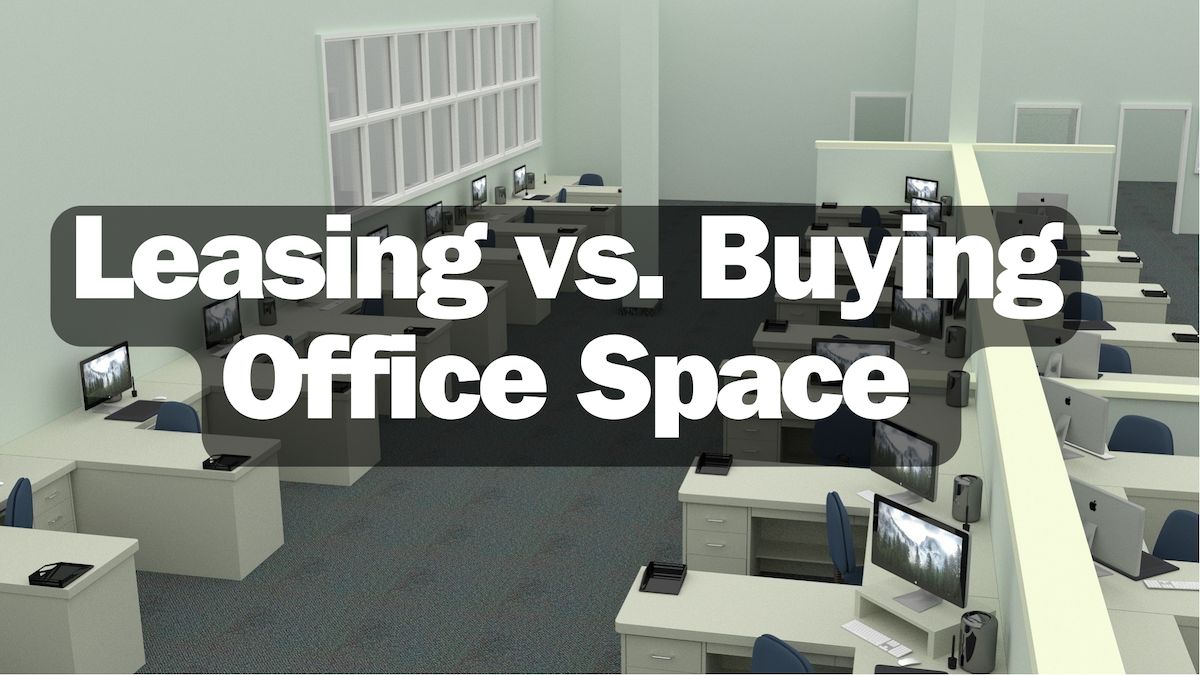Selecting the right office space is a pivotal decision for businesses, with far-reaching implications for financial stability and operational efficiency. In the realm of commercial real estate, the debate between leasing and buying office space in the USA is a complex one. This detailed blog post aims to provide an in-depth exploration, examining the advantages, drawbacks, and critical considerations associated with both options. Real-world examples will be used to illustrate how businesses can strategically navigate this decision-making process.
Leasing Office Space: The Flexibility Advantage
1. Financial Flexibility
Leasing office space allows businesses to maintain financial flexibility, particularly beneficial for startups and companies in dynamic industries. The reduced upfront costs and negotiable lease terms free up capital for immediate operational needs and growth initiatives.
Example: A technology startup may choose to lease office space in a co-working environment, providing a cost-effective and flexible solution as they scale their operations.
2. Agility and Scalability
For businesses in industries prone to rapid changes, leasing offers unparalleled agility and scalability. Short-term leases allow companies to adapt to market fluctuations, seasonal demands, or unforeseen circumstances without the commitment associated with ownership.
Example: A retail business might opt for a short-term lease during the holiday season to accommodate increased inventory and staff, allowing them to flexibly adjust their space requirements.
3. Maintenance and Overhead
Leasing minimizes the burden of maintenance and operational costs, as landlords or property management typically handle these responsibilities. This frees businesses from the complexities of property management, enabling them to focus on core operations.
Example: A marketing agency leasing office space in a commercial building benefits from the property management’s responsibility for maintenance, ensuring a conducive work environment without diverting internal resources.
4. Location Choices
Leasing provides businesses with the flexibility to explore prime locations without the long-term commitment associated with ownership. This strategic advantage is particularly crucial for businesses seeking optimal locations for client accessibility or brand visibility.
Example: An emerging design firm may choose to lease a downtown office space to enhance its brand visibility and attract clients in a vibrant business district.
Buying Office Space: The Long-Term Investment Perspective
1. Equity Building
Purchasing office space presents businesses with the opportunity to build equity over time. Payments toward a mortgage contribute to ownership, offering a tangible asset that can appreciate in value and potentially serve as collateral for future financial endeavors.
Example: A law firm purchasing its office space over a 20-year mortgage builds substantial equity, providing a valuable asset that could be leveraged for expansion or other strategic investments.
2. Control and Customization
Ownership grants businesses unparalleled control over the property. This control extends to customization options, allowing companies to tailor the space to their unique needs and brand identity without the restrictions imposed by landlords.
Example: A growing architecture firm that owns its office space can invest in custom renovations to create a workspace that reflects its design aesthetic and enhances team collaboration.
3. Stability in Costs
Owning office space provides stability in costs, as mortgage payments are typically fixed. This predictability allows businesses to plan their long-term financial strategy with confidence, avoiding the uncertainties associated with potential rent increases.
Example: A medical practice that owns its office space benefits from predictable monthly mortgage payments, enabling the business to allocate funds strategically, whether for equipment upgrades or hiring additional staff.
4. Potential Tax Benefits
Ownership often comes with potential tax benefits, including deductions for mortgage interest and property depreciation. These tax advantages can contribute to the overall financial health of the business.
Example: An established accounting firm that owns its office space may benefit from tax deductions on mortgage interest payments, providing a valuable financial advantage.
Critical Considerations for Decision-Making
1. Financial Health and Objectives
Assessing the financial health and objectives of your business is paramount. For a startup with uncertain growth trajectories, leasing may be the prudent choice. Conversely, an established company with stable finances and long-term goals may find ownership more appealing.
2. Growth Projections
Consider your business’s growth projections. Leasing provides the flexibility to adapt to changing space needs, making it suitable for industries with unpredictable growth. In contrast, ownership is more suitable for businesses with stable and foreseeable expansion plans.
3. Market Conditions
The current state of the commercial real estate market plays a crucial role in decision-making. In a buyer’s market, purchasing office space might be economically advantageous, while in a seller’s market, leasing could offer better value.
4. Legal and Regulatory Considerations
Understand the legal and regulatory aspects associated with leasing and buying. Lease agreements and property ownership involve legal obligations, and businesses should be well-versed in these aspects before making a decision.
Conclusion
The decision between leasing and buying office space in the USA is a multifaceted one that demands a thorough understanding of your business’s unique needs, financial health, and long-term objectives. Real-world examples illustrate how businesses can strategically navigate this decision-making process, ultimately aligning their choice with their strategic goals and financial capabilities. In the dynamic landscape of commercial real estate, thoughtful consideration and strategic planning are essential for businesses to thrive in their chosen office space.







Leave a Reply